Several of our past blogs, podcasts and YouTube videos have focused on “getting around” and how important accessible transit can be for those of us who may no longer drive.
My local transit agency, PSTA (Pinellas Suncoast Transit Authority) has been very active in addressing the needs of the disability community and, really, any riders who may need special consideration in using transit.
This year something new and different came to our area and it really presented all of us with some exciting challenges and opportunities.
A driverless bus! – Or as it is officially called an autonomous vehicle.
This project came to our area through a partnership between PSTA and Beep, an innovative new company from Orlando who is bringing autonomous mobility solutions to markets in the US. I chose to highlight this project on our most recent podcast, and now here in this Blog. I did this not just because of how innovative it is, but because of how exciting it is to see companies actually care about meeting the needs of all their customers, especially those of us with disabilities.
In January of this year, I was invited to join PSTA and Beep as they conducted an ADA day seeking specific input from disabled riders. I was given the opportunity to ride the full route of their autonomous bus, named AVA. And then representatives from both companies asked for my input about the experience.
And then, this month I interviewed Raquel Asa, Beep’s chief Marketing Officer for our Podcast.
An autonomous vehicle is not automatically disability friendly. But Beep set out from the start to provide a great experience to all riders, including those with disabilities.
Currently “AVA” has a built in “kneel” function that dips it down closer to curb-level, making it easier and safer for ambulatory riders to step in. And although it does not have an automatic ramp, currently there is an attendant on board who sets up a manual ramp and attaches wheelchairs to securement points. And the vehicle has seatbelts all around!
For vision-impaired riders there are numerous auditory instructions. And for the hearing impaired there is good signing and upgraded auditory messages. And for everyone there is currently the supportive attendant.
The onboard attendant does not drive the vehicle but serves as what they call a “Co-pilot”. Eventually all functions on the bus will be made automatic and an attendant may no longer be needed or may serve a different function. Like a tour guide?
But even in the absence of an attendant, each bus will have a level of “Humanized autonomy” where systems and performance are monitored remotely on a continuous basis..
But how was the ride? Wonderful! The numerous monitors all around the bus detect other vehicles, pedestrians, traffic signals and unplanned obstacles. The ride is smooth and was felt truly safe.
Other riders who attended the ADA day were vision and hearing impaired. They also reported feeling safe with the vehicle and the accommodations made to accommodate their needs.
Over the years we’ve seen far too many companies ignore or fight against making their products accessible. And that can be disheartening,
In contrast to that, this was exciting! Two companies, working together to plan for our needs from the start!! This kind of smart business planning should be an example for everyone.
This was all a very delightful experience learning about and helping to shape an innovative transit option for the future.
Thank you PSTA and Beep!

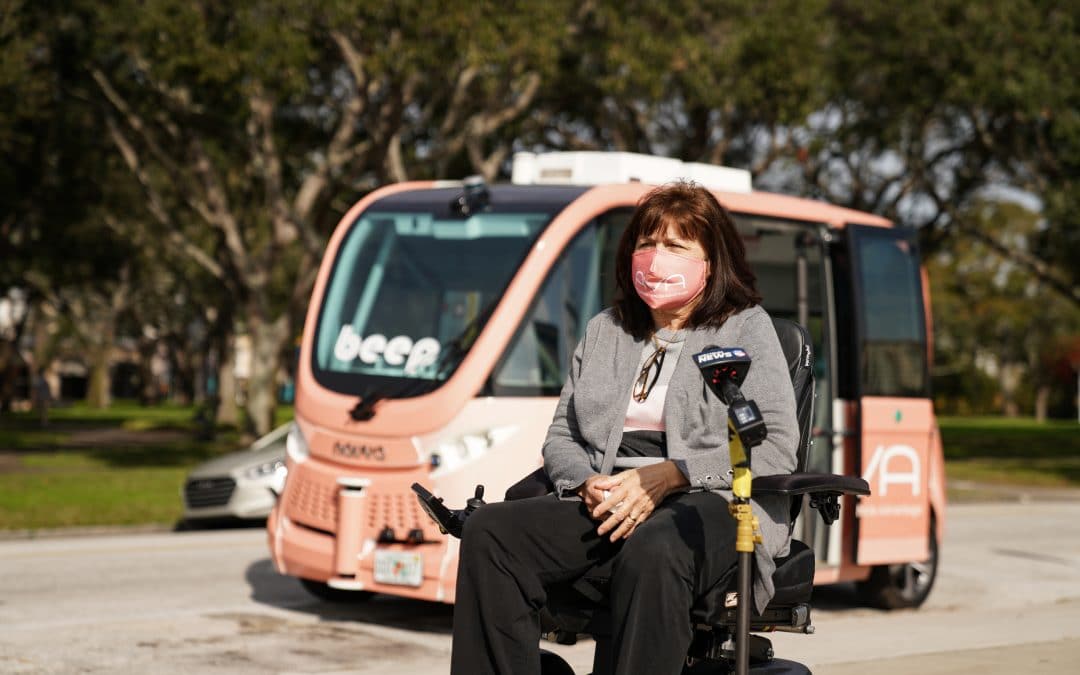
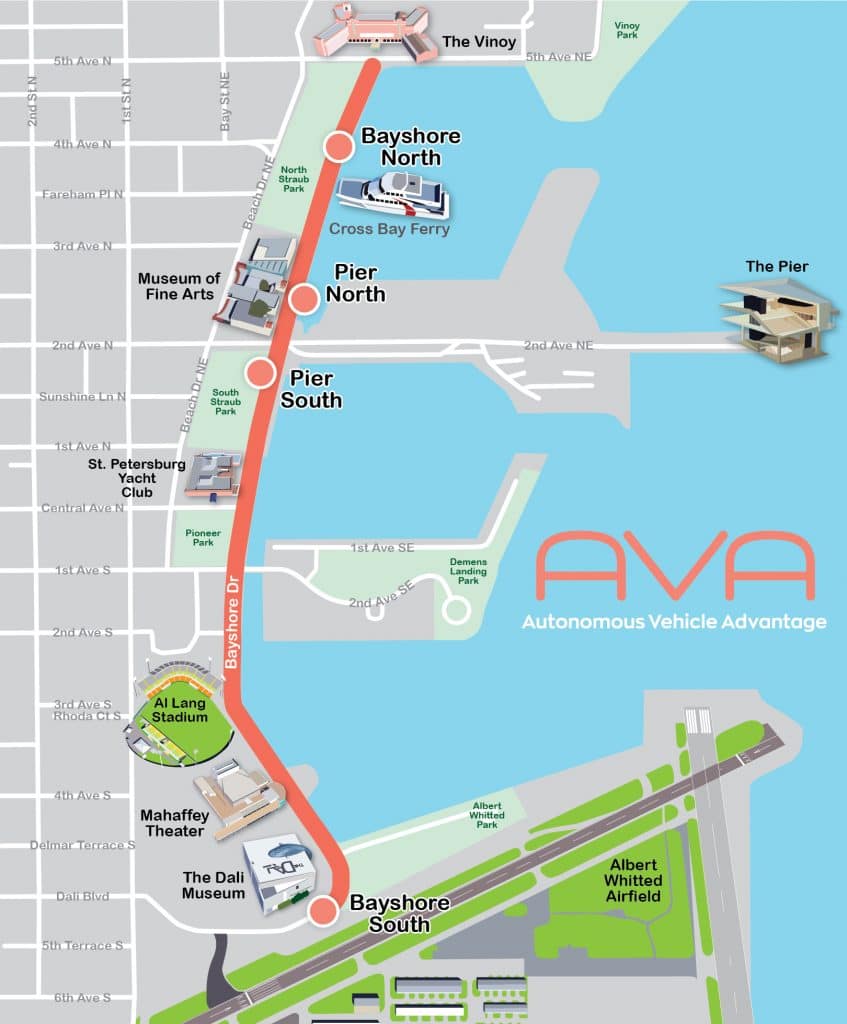
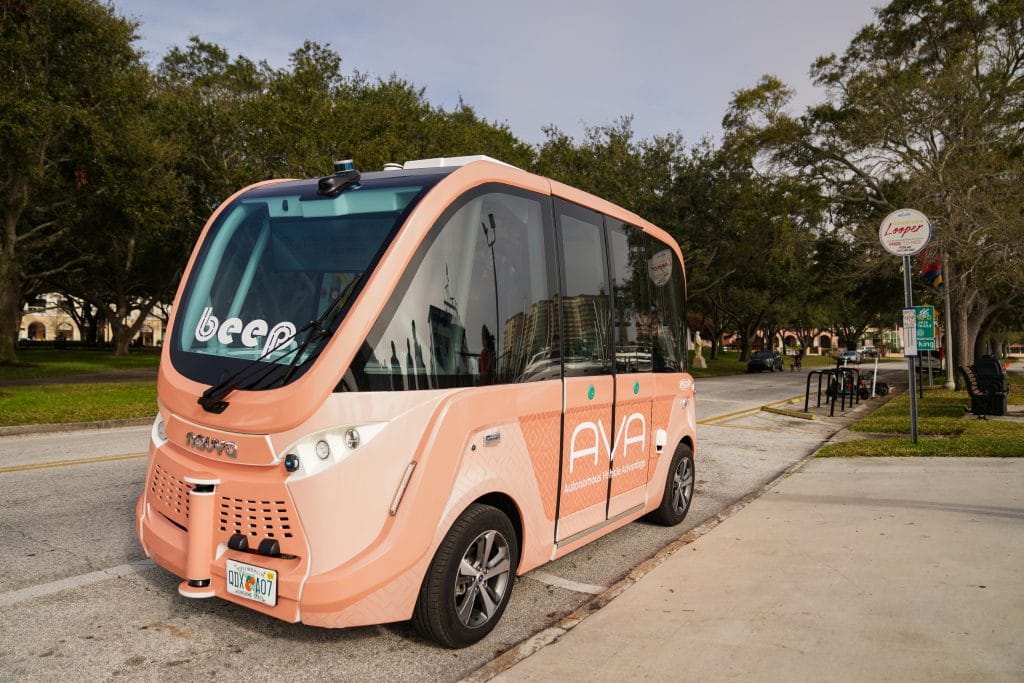
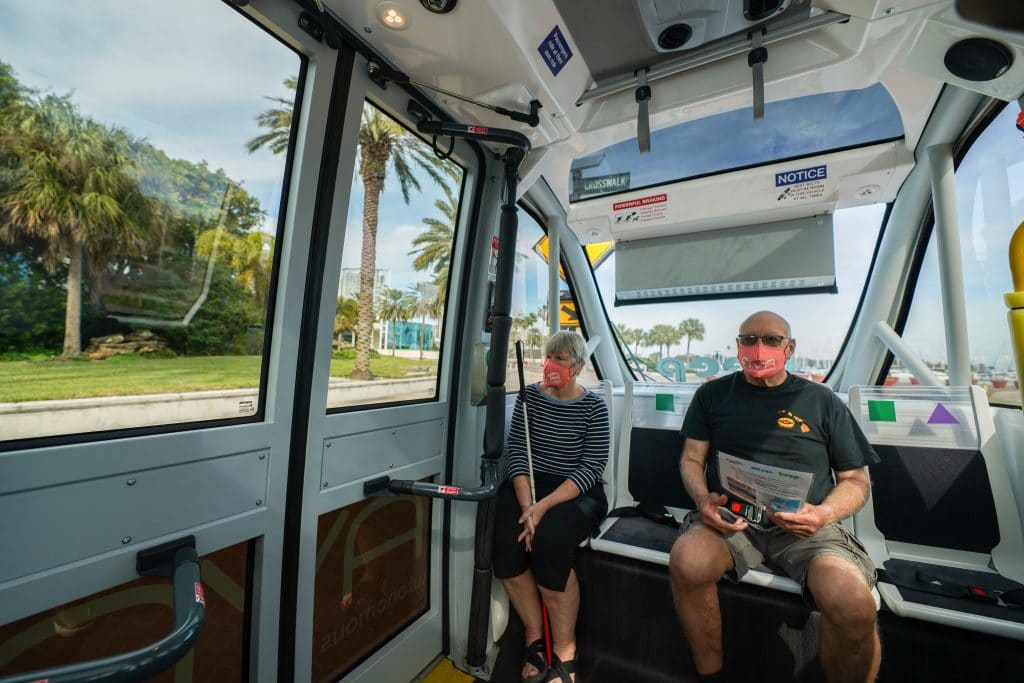
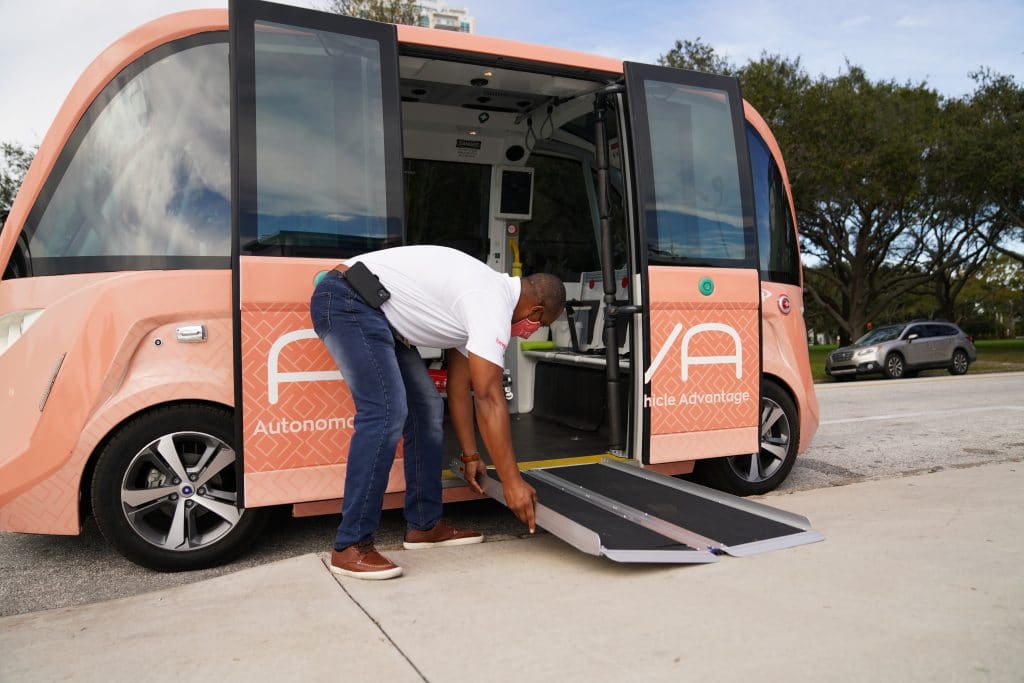
 This website is designed to give you practical tips, advice and links that will support your journey to seek out the solutions that work best for you.
This website is designed to give you practical tips, advice and links that will support your journey to seek out the solutions that work best for you.